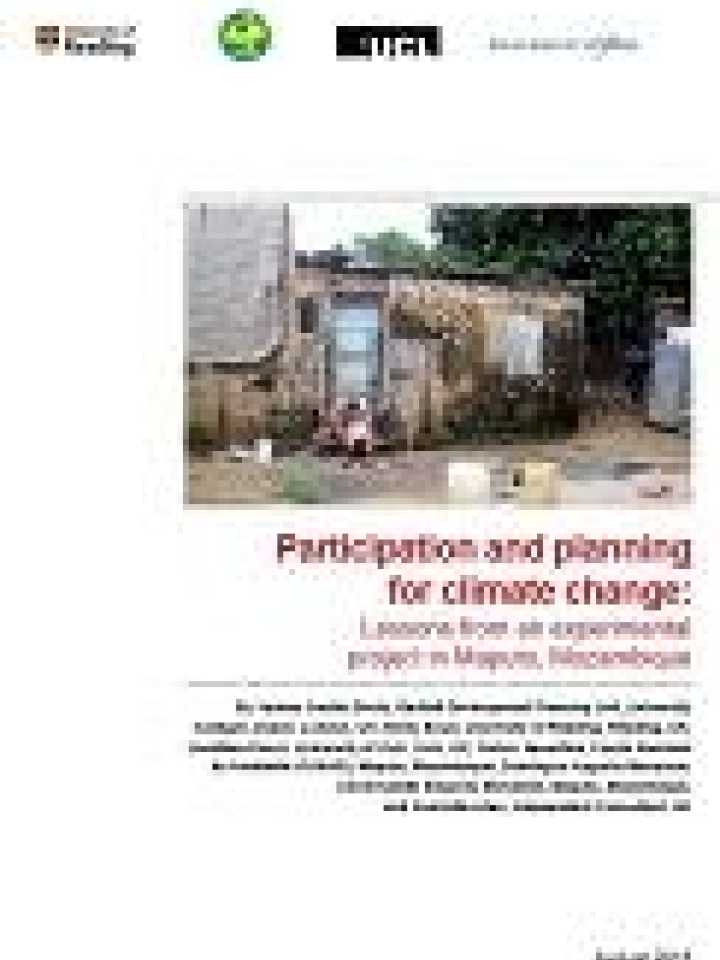Participation and planning for climate change: lessons from an experimental project in Maputo, Mozambique
This paper provides an overview of the experiences and lessons learned from the ‘Public, Private, People Partnerships for Climate Compatible Development’ (4PCCD) project in Maputo, Mozambique. The paper explores the particular, participatory approaches taken in identifying climate-related development problems and solutions in Chamanculo C. It describes the project, which developed participatory planning methods to foster partnerships between actors within different sectors in order to tackle climate change through actions in specific locations in Maputo, specifically the neighbourhood of Chamanculo C. Through the process, residents pinpointed the need to address sanitation issues as a key development priority – and it was found that addressing these concerns would also address their vulnerability to climate-related impacts.
The authors of the paper conclude that: “The project demonstrates that local residents in Chamanculo C, and perhaps Maputo more broadly, could be responsive to a participatory planning culture. Giving each citizen a voice is essential to developing the potential of local communities to both engage with climate change information and to catalyse action for climate change. They can do so by incorporating climate change concerns into local development priorities. While in an abstract setting conflicts between development, mitigation and adaptation priorities may seem irreconcilable, communities are able to formulate practical and feasible options that negotiate and even resolve such trade-offs. The project also demonstrates that government institutions and business have a lot to gain from listening to local communities’ perspectives. Overall, local communities have a grounded understanding of climate, and they can do a lot with limited resources by capitalising on their own human resources.”
Explore further
